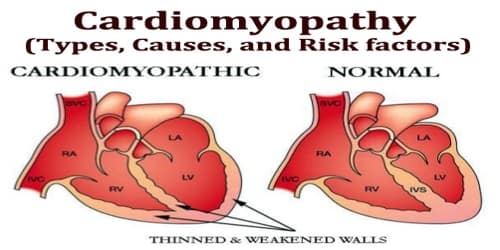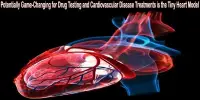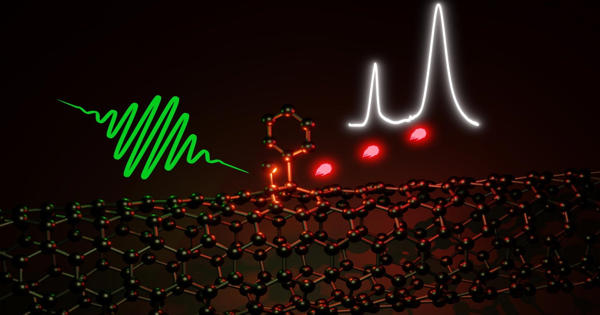Cardiomyopathy (Types, Causes, and Risk factors)
Definition: Cardiomyopathy (kahr-dee-o-my-OP-uh-thee) is a progressive disease of the myocardium or heart muscle. In most cases, the heart muscle weakens and is unable to pump blood to the rest of the body as well as it should. Cardiomyopathy can lead to heart failure.
These diseases have many causes, signs, and symptoms as well as treatments. In most cases, cardiomyopathy causes the heart muscle to become enlarged, thick or rigid. In rare instances, diseased heart muscle tissue is replaced with scar tissue.
Early on there may be few or no symptoms. Some people may have shortness of breath, feel tired, or have swelling of the legs due to heart failure. An irregular heartbeat may occur as well as fainting. Those affected are at an increased risk of sudden cardiac death.
The main types of cardiomyopathy include dilated hypertrophic and restrictive cardiomyopathy. Treatment depends on the type of cardiomyopathy and the severity of symptoms. Treatments may include lifestyle changes, medications, or surgery.
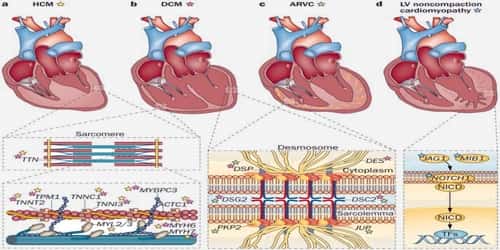
Types and Causes of Cardiomyopathy: Cardiomyopathy generally has four types. Types of cardiomyopathy include hypertrophic cardiomyopathy, dilated cardiomyopathy, restrictive cardiomyopathy, and arrhythmogenic right ventricular dysplasia.
- Hypertrophic cardiomyopathy – Hypertrophic cardiomyopathy is believed to be genetic. It occurs when our heart walls thicken and prevent blood from flowing through our heart. It’s a fairly common type of cardiomyopathy. It can also be caused by long-term high blood pressure or aging. Diabetes or thyroid disease can also cause hypertrophic cardiomyopathy. There are other instances that the cause is unknown.
- Dilated cardiomyopathy – In this type of cardiomyopathy, the pumping ability of our heart’s main pumping chamber the left ventricle becomes enlarged (dilated) and can’t effectively pump blood out of the heart. Although this type can affect people of all ages, it occurs most often in middle-aged people and is more likely to affect men. The most common cause is coronary artery disease or heart attack.
- Arrhythmogenic right ventricular dysplasia (ARVD) – Arrhythmogenic right ventricular dysplasia (ARVD) is a very rare form of cardiomyopathy, but it’s the leading cause of sudden death in young athletes. In this type of genetic cardiomyopathy, fat and extra fibrous tissue replace the muscle of the right ventricle. This causes abnormal heart rhythms.
- Restrictive cardiomyopathy – In this type, the heart muscle becomes rigid and less elastic, so it can’t expand and fill with blood between heartbeats. This least common type of cardiomyopathy can occur at any age, but it most often affects older people. Restrictive cardiomyopathy can occur for no known reason (idiopathic), or it can be caused by a disease elsewhere in the body that affects the heart, such as when iron builds up in the heart muscle (hemochromatosis).
Some other types of cardiomyopathy are called “unclassified cardiomyopathy.” Yet another type is “stress-induced cardiomyopathy,” also known as broken heart syndrome.
Cardiomyopathy can be “acquired,” meaning it develops because of another disease, condition or factor. Or, cardiomyopathy can be “inherited,” meaning the gene for the disease was passed on from a parent.
Contributing factors for acquired cardiomyopathy include:
- Long-term high blood pressure
- Heart tissue damage from a heart attack
- Chronic rapid heart rate
- Heart valve problems
- Metabolic disorders, such as obesity, thyroid disease or diabetes
- Nutritional deficiencies of essential vitamins or minerals, such as thiamin (vitamin B-1)
- Pregnancy complications
- Drinking too much alcohol over many years
- Use of cocaine, amphetamines or anabolic steroids
- Use of some chemotherapy drugs and radiation to treat cancer
- Certain infections, especially those that inflame the heart
- Iron buildup in your heart muscle (hemochromatosis)
- A condition that causes inflammation and can cause lumps of cells to grow in the heart and other organs (sarcoidosis)
- A disorder that causes the buildup of abnormal proteins (amyloidosis)
- Connective tissue disorders
In many cases, the cause of cardiomyopathy isn’t known. This is often the case when the disease occurs in children.
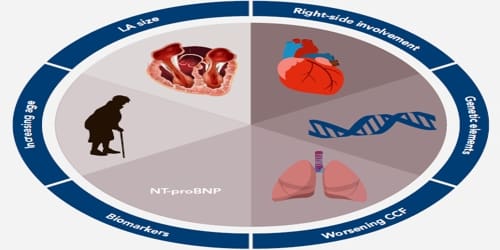
Risk factors and Complications of Cardiomyopathy: Cardiomyopathy can affect people of all ages. Major risk factors include the following:
- a family history of cardiomyopathy, sudden cardiac arrest, or heart failure
- coronary heart disease
- diabetes
- severe obesity
- sarcoidosis
- hemochromatosis
- amyloidosis
- heart attack
- long-term high blood pressure
- alcoholism
Other conditions that affect the heart, such as a disorder that causes the buildup of abnormal proteins (amyloidosis), a disease that causes inflammation and can cause lumps of cells to grow in the heart and other organs (sarcoidosis), or connective tissue disorders.
Cardiomyopathy can lead to other heart conditions, including:
- Heart failure
- Blood clots
- Valve problems
- Cardiac arrest and sudden death
Cardiomyopathy can affect all ages, although certain age groups are more likely to have certain types of cardiomyopathy.
According to research, HIV, HIV treatments, and dietary and lifestyle factors can also increase people’s risk of cardiomyopathy. HIV can increase people’s risk of heart failure and dilated cardiomyopathy, in particular.
Information Source:
